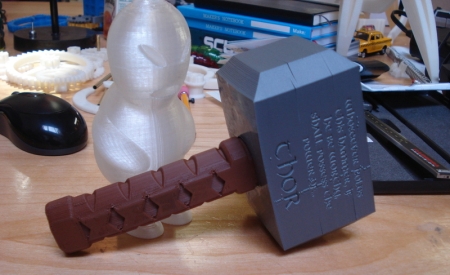Mattie Brice makes the case for eliminating quests altogether in open world role-playing game such as Skyrim,
My response? Abandon quests altogether for future Elder Scrolls games. Skyrim is at a place in its evolution where the series can’t rationalize holding onto several RPG conventions for convention’s sake. There is no reason that we need to go into Skyrim expecting quests to guide us along everywhere because the point of the game is to explore with player-driven volition. I can see a Skyrim that has no quests that are explicitly given to the player but only offers rumors and clues along with different ways of obtaining them. My first time in Riverwood, I was looting the general store on the top floor and happened to overhear some siblings arguing over finding something called the golden claw. Just that knowledge should have empowered me to go find it, but Skyrim relies on the quest-giving model and its explicitly defined objectives, which are all created by developers instead of the player. This is especially problematic when you get the claw back from the bandit who holds it. Your game journal tells you to explore the barrow further. My decision to keep going into the ruins or to get the claw back to the store would be more meaningful if I came to that decision on my own, as hints were already there to do so.
I left Skyrim feeling that this was it. There’s nowhere else to progress given the trajectory the series has found for itself. It’s the same ol’ fantasy with the same ol’ combat, the same “epic” story that I have seen before. A stronger focus on helping the player tell their stories through the method that The Elder Scrolls has established would shed the necessity that binds the series in its RPG conventions. As recent RPG developers have found, the usual ways that the genre tells stories isn’t working anymore, and there’s little progress in designing something players haven’t seen before. The narrative is in the play. Let me play.
Interesting. I’m not sure we’ll ever seen a quest-free Elder Scrolls, but Skyrim does get a bit annoying in its quest-a-holic format. My son was about 20 hours into Skyrim on the XBox when he looked up and said “Dad, how do I abandon a quest?” Well, at least on the console versions, you can’t. Accept a quest, and you’re stuck with it forever. That design decision is extremely annoying.
The other problem with Skyrim quests, IMO, is the lack of parallel quest structures. For example, I enjoyed the entire line of Thieves Guild quests. What I would have liked even more, however, would have been the option to go undercover and bring the Thieves Guild to justice. I could just ignore the Thieves Guild altogether, or perhaps go in and slaughter the whole bunch, but neither of those options parallels the existing Thieves Guild quests.
